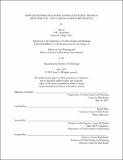| dc.contributor.advisor | Kairos Shen. | en_US |
| dc.contributor.author | Li, Sara(Sara Dongying) | en_US |
| dc.contributor.other | Massachusetts Institute of Technology. Department of Urban Studies and Planning. | en_US |
| dc.contributor.other | Massachusetts Institute of Technology. Center for Real Estate. Program in Real Estate Development. | en_US |
| dc.coverage.spatial | n-us-ma | en_US |
| dc.date.accessioned | 2020-02-28T20:53:22Z | |
| dc.date.available | 2020-02-28T20:53:22Z | |
| dc.date.copyright | 2019 | en_US |
| dc.date.issued | 2019 | en_US |
| dc.identifier.uri | https://hdl.handle.net/1721.1/123973 | |
| dc.description | This electronic version was submitted by the student author. The certified thesis is available in the Institute Archives and Special Collections. | en_US |
| dc.description | Thesis: M.C.P., Massachusetts Institute of Technology, Department of Urban Studies and Planning, 2019 | en_US |
| dc.description | Thesis: S.M. in Real Estate Development, Massachusetts Institute of Technology, Program in Real Estate Development in conjunction with the Center for Real Estate, 2019 | en_US |
| dc.description | Cataloged from student-submitted PDF version of thesis. | en_US |
| dc.description | Includes bibliographical references (pages 87-89). | en_US |
| dc.description.abstract | Large-scale real estate developments present unique challenges for planners to determine the optimal provision of public benefits. Because of the scale and scope of these projects, substantial negotiation is involved between the city and the private developer in order to issue the development agreement. This thesis seeks to unpack how developers and city planning officials negotiate zoning amendments and determine how much public benefits matter throughout the approvals process. Given the differing viewpoints between planners and developers, I hope to provide clarity on the considerations of both sides. My thesis recognizes that the negotiation between the city and developers to reach the development agreements and determine public benefits is a complex, crucial planning process which lacks sufficient scholarly attention to bridge theory and practice. I look to two case studies in Boston's downtown: the Ritz-Carlton Complex and One Lincoln Street. Both projects received initial approvals but encountered market downturns that forced the developments to stall. The projects restarted again a decade later, successfully completed approvals and construction, and became catalytic projects for the city. I found that despite substantial risk and other obstacles, both development teams showed willingness and commitment to embrace the public benefit obligations. The projects resulted in significant public benefits provided to the city; furthermore, to the developer, the quantified price tag of those public benefits had more influence on the success of the project than the numbers might suggest. I argue that although public benefits are often treated as project costs, they create long term value to both the developer and the city. Developers and planners who can understand the full spectrum of issues will likely be more successful in negotiating future agreements for zoning reliefs and public benefits. | en_US |
| dc.description.statementofresponsibility | by Sara Li. | en_US |
| dc.format.extent | 89 pages | en_US |
| dc.language.iso | eng | en_US |
| dc.publisher | Massachusetts Institute of Technology | en_US |
| dc.rights | MIT theses are protected by copyright. They may be viewed, downloaded, or printed from this source but further reproduction or distribution in any format is prohibited without written permission. | en_US |
| dc.rights.uri | http://dspace.mit.edu/handle/1721.1/7582 | en_US |
| dc.subject | Urban Studies and Planning. | en_US |
| dc.subject | Center for Real Estate. Program in Real Estate Development. | en_US |
| dc.title | How developers negotiate zoning and public benefits with the city : two cases in downtown Boston | en_US |
| dc.type | Thesis | en_US |
| dc.description.degree | M.C.P. | en_US |
| dc.description.degree | S.M. in Real Estate Development | en_US |
| dc.contributor.department | Massachusetts Institute of Technology. Department of Urban Studies and Planning | en_US |
| dc.contributor.department | Massachusetts Institute of Technology. Center for Real Estate. Program in Real Estate Development | en_US |
| dc.contributor.department | Massachusetts Institute of Technology. Center for Real Estate | |
| dc.identifier.oclc | 1140509170 | en_US |
| dc.description.collection | M.C.P. Massachusetts Institute of Technology, Department of Urban Studies and Planning | en_US |
| dc.description.collection | S.M.inRealEstateDevelopment Massachusetts Institute of Technology, Program in Real Estate Development in conjunction with the Center for Real Estate | en_US |
| dspace.imported | 2020-02-28T20:53:22Z | en_US |
| mit.thesis.degree | Master | en_US |
| mit.thesis.department | UrbStud | en_US |
| mit.thesis.department | RED | en_US |
